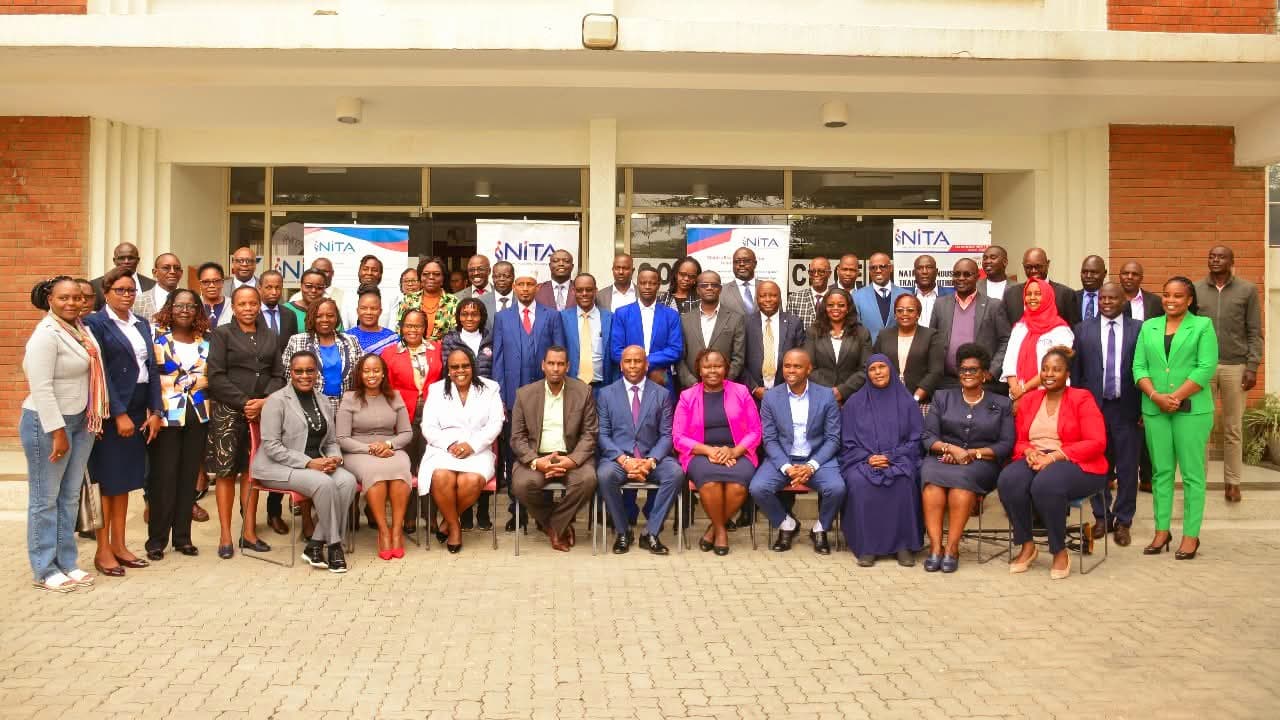The National Industrial Training Authority (NITA) today convened a high-level consultative forum at the NITA Athi-River Conference Centre, bringing together national and county leaders to strengthen coordination in the implementation of Kenya’s National Skills Development Agenda.

The forum, which brought together County Executive Committee Members (CECMs) for Education and Training, NITA leadership, and representatives from the Council of Governors, focused on aligning efforts to enhance skills development and expand employment opportunities for Kenyans.
Mr. Shadrack Mwadime, EBS, Principal Secretary for the State Department of Labour and Skills Development, in a statement delivered by Mr. Shambi, emphasized the importance of collaboration in delivering the Kenya National Skills Development Policy. He highlighted the policy’s focus on lifelong learning, Recognition of Prior Learning (RPL), and employer-driven training models. Mr. Mwadime applauded NITA for its milestones in curriculum reforms, industry partnerships, and the successful rollout of the National Labour Market Information System (LMIS) to better align training with market needs.
The RPL program, a major focus under the Presidential Rapid Results Initiative (RRI), is aimed at formally recognizing and certifying skills gained informally, particularly within the informal sector. NITA is targeting 420,000 assessments by October 2025. This initiative is expected to greatly improve the employability, dignity, and career mobility of workers, including artisans and vocational professionals.
County governments are key to the success of the RPL program by identifying and preparing candidates, managing vocational training centers, and supporting demand-driven skills programs. The forum encouraged counties to appoint RPL focal persons, support candidate mobilization, and strengthen industry linkages. The State Department committed to providing technical support, policy guidance, and capacity building to counties to support these efforts.
Ms. Carolyn Rutto, Chairperson of the Industrial Training and Strategy Committee (ITSC) of the National Industrial Training Board (NITB), reaffirmed her commitment to transforming industrial training in Kenya. She highlighted the ITSC’s role in advising the Board on strategic priorities, building partnerships, overseeing training programs, and reviewing policies to ensure quality.
Ms. Theresa Wasike, Acting Director General of NITA, welcomed all participants and emphasized the critical role of county governments in advancing industrial training. She noted the overwhelming presence of CECMs as a sign of the counties’ commitment to skills development. Ms. Wasike outlined NITA’s key responsibilities, including regulation, curriculum development, training provider accreditation, skills assessment, certification, and integration of Labour Market Information to support decision-making. She underscored NITA’s role in supporting the Bottom-Up Economic Transformation Agenda (BETA) through skills development.
Hon. Ali Noor Aden, MBS, Chairman of the National Industrial Training Board, emphasized the Board’s focus on strengthening partnerships with national and county governments, the private sector, and international agencies to expand the reach of training opportunities. He highlighted the Board’s role in improving the quality and efficiency of personnel training to meet the demands of Kenya’s growing economy.
Hon. Aden reiterated the Board’s commitment to reforms that promote inclusivity, innovation, and excellence, expressing confidence that the forum’s engagements would open up more avenues for collaboration.
The forum marked a significant step towards building a more coordinated, inclusive, and impactful skills development system aimed at empowering Kenyans, especially the youth, and supporting national economic growth.






